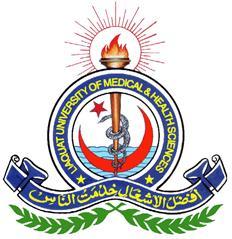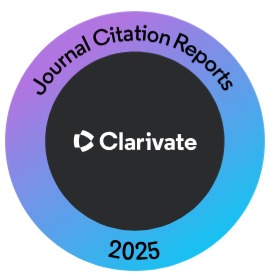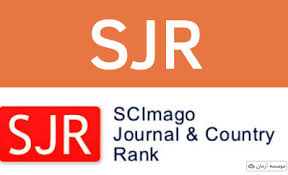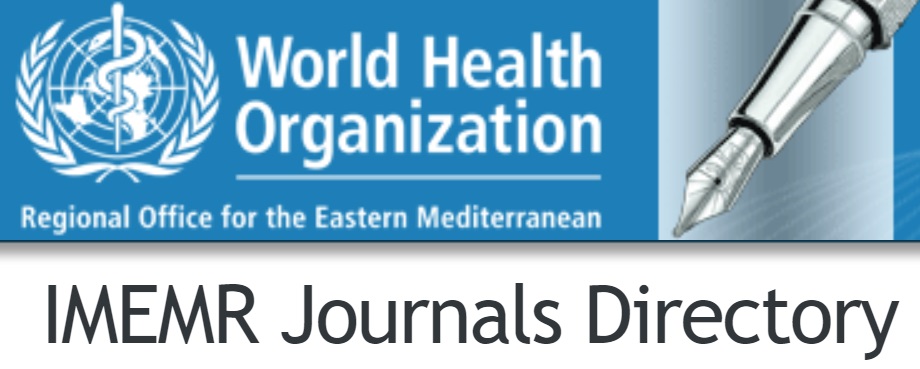Effectiveness of Mini-CEX as an assessment tool in Pediatric Postgraduate Residents’ Learning.
Keywords:
Clinical competency, Feedback, Formative assessment, Medical Education, Mini-CEX, Workplace-based assessmentAbstract
Objective: To determine the effectiveness of Mini-CEX as a formative assessment instrument in improving the clinical skills of postgraduate residents in Pediatrics.
Methodology: This cross-sectional study was conducted from January to August 2021 at Ziauddin Medical University. A total of 176 Mini-CEX encounters were conducted on twenty-two Pediatric postgraduate residents by eight faculty members. The non-probability convenience technique was used for sampling. Each resident underwent one Mini-CEX encounter per month, and the ratings were recorded. An Objectively Structured Clinical Evaluation (OSCE) was conducted before the first Mini-CEX session, and the last and the mean scores were compared. Data were analyzed using SPSS version 20. ANOVA was used to determine inferential statistics to calculate the p-value and the improvement in score over time to report statistical significance.
Results: Mean scores of all clinical competencies improved with subsequent Mini-CEX sessions. Maximum improvement was noted in clinical management skills and organization/efficiency. Marked improvement was observed in OSCE scores before the first Mini-CEX session and after the eighth session (p-value <0.001). An increase in the satisfaction rate of both faculty and residents with each subsequent Mini-CEX session was also noted.
Conclusion: Mini-CEX effectively improves pediatric postgraduate residents' clinical learning; therefore, it should be incorporated into the national residency program.
References
Norcini JJ, Blank LL, Arnold GK, Kimball HR. The mini-CEX (clinical evaluation exercise): a preliminary investigation. Ann Intern Med. 1995; 123(10): 795-9. doi: 10.7326/0003-4819-123-10- 199511150-00008.
Lo?rwald AC, Lahner FM, Greif R, Berendonk C, Norcini J, Huwendiek S. Factors influencing the educational impact of Mini-CEX and DOPS: a qualitative synthesis. Med Teach. 2018; 40(4): 414-20. doi: 10.1080/0142159X.2017.1408901.
Joshi MK, Singh T, Badyal DK. Acceptability and feasibility of Mini-Clinical Evaluation Exercise as a formative assessment tool for workplace-based assessment for surgical postgraduate students. J Postgrad Med. 2017; 63(2): 100-105. doi: 10.4103/0022-3859.201411.
Alam I, Ali Z, Muhammad R, Afridi MAR, Ahmed F. Mini-CEX: An Assessment Tool For Observed Evaluation Of Medical Postgraduate Residents During Their Training Program: An Overview And Recommendations For Its Implementation In CPSP Residency Program. J Postgrad Med Inst. 2016; 30(2): 110-114.
Sultana S. MINI-CEX: feasibility, acceptability, and effectiveness of its use in the learning of postgraduate residents. Pak Armed Forces Med J. 2018; 68 (3): 601-607.
Bramlett MD, Read D, Bethell C, Blumberg SJ. Differentiating subgroups of children with special health care needs by health status and complexity of health care needs. Matern Child Health J. 2009; 13(2): 151-163. doi: 10.1007/s10995-008-0339-z. Epub 2008 Apr 2.
Yusuf L, Ahmed A, Yasmin R. Educational impact of Mini-Clinical Evaluation Exercise: A game changer. Pak J Med Sci. 2018; 34(2): 405-411. doi: 10.12669/pjms.342.14667.
Kim S, Willett LR, Noveck H, Patel MS, Walker JA, Terregino CA. Implementation of a mini-CEX requirement across all third-year clerkships. Teach Learn Med. 2016; 28: 424-31. doi: 10.1080/10401334.2016.1165682.
Azeem M, Bukhari F, Manzoor M, Raza A, Haq A, Hamid W. Effectiveness of Mini-Clinical Evaluation Exercise (Mini-CEX) with Multisource Feedback as Assessment Tool for Orthodontic PG Residents. Pak J Health Med Sci. 2020; 14(3): 647-649.
Buch PM. Impact of introduction of Mini-Clinical Evaluation Exercise in formative assessment of undergraduate medical students in pediatrics. Int J Contemp Pediatr. 2019; 6(6): 2248-2253.
Sethi S, Srivastava V, Verma P. Mini-Clinical Evaluation Exercise as a Tool for Formative Assessment of Postgraduates in Psychiatry. Int J Appl Basic Med Res. 2021; 11(1): 27-31. doi:10.4103/ijabmr.IJABMR_305_20.
Baqai S. Mini-CEX is a reliable and doable workplace-based assessment tool. Pak Armed Forces Med J. 2018; 68(6): 1571-75.
Zareen A. Educational Impact of Mini-CEX Using Clinical Encounter Card System among Obstetrics and Gynecology Residents in a Tertiary Care Hospital. J Coll Physicians Surg Pak.2018; 28(11): 868-871. doi: 10.29271/jcpsp.2018.11.868.
Saeed N, Tariq N, Jeffery T. Mini-CEX (Clinical Evaluation Exercise) as an assessment tool at Shifa College of Medicine, Islamabad, Pakistan. Rawal Med J. 2015; 40(2): 220-224.
Gade SA, Chari SN, Chalak A. Use of mini–CEX as a teaching-learning method in physiology for undergraduate medical students. Natl J Physiol Pharm Pharmacol. 2017; 7(5): 482-485. doi: 10.5455/njppp.2017.7.1029720122016.
Shah MI, Qayum I, Bilal N, Ahmed S. Evaluation of an implemented Mini-CEX program for workplace-based assessment at Rehman Medical College, Peshawar, Khyber Pakhtunkhwa. Professional Med J. 2021; 28(9): 1346-50. doi: 10.29309/TPMJ/2021.28.09.6120.
Meresh E, Daniels D, Sharma A, Rao M, Mehta K, Schilling D. Review of mini-clinical evaluation exercise (mini-CEX) in a psychiatry clerkship. Adv Med Educ Pract. 2018; 9: 279-283. doi: 10.2147/AMEP.S160997.
Martinsen SSS, Espeland T, Berg EAR, Samstag E. Examining the educational impact of the Mini-CEX: a randomized controlled study. BMC Med Educ. 2021; 21(1): 228. doi: 10.1186/s12909-021-02670-3.
Hejri SM, Jalili M, Shirazi M, Masoomi R, Nedjat S, Norcini J. The utility of mini-Clinical Evaluation Exercise (mini-CEX) in undergraduate and postgraduate medical education: protocol for a systematic review. Systemetic Review. 2017; 6(1): 1- 8.
Goel A, Singh T. The usefulness of Mini Clinical Evaluation Exercise as a learning tool in different pediatric settings. Int J Appl Basic Med Res. 2015; 5(1): S32-34. doi: 10.4103/222 9-516x.162266.
Gupta S, Sharma M, Singh T. The acceptability and feasibility of mini-clinical evaluation exercise as a learning tool for pediatric postgraduate students. Int J Appl Basic Med Res. 2017; 7(Suppl 1): S19-S22. doi: 10.4103/ijabmr.IJABMR_152_17.
Khalil S, Aggarwal A, Mishra D. Implementation of a Mini-Clinical Evaluation Exercise (Mini-CEX) program to assess the clinical competence of postgraduate trainees in Pediatrics. Ind Pediatr. 2017; 54(4): 284-7. doi: 10.1007/s13312-017-1089-z. Epub 2017 Feb 2.
Bashir K, Arshad W, Azad AM, Alfalahi S, Kodumayil A, Elmoheen A. Acceptability and Feasibility of Mini Clinical Evaluation Exercise (Mini-CEX) in the Busy Emergency Department. Open Access Emerg Med. 2021; 13: 481-6. doi:10.2147/OAEM.S321161.
Downloads
Published
How to Cite
Issue
Section
License
Copyright (c) 2023 Journal of Liaquat University of Medical & Health Sciences

This work is licensed under a Creative Commons Attribution-NonCommercial-ShareAlike 4.0 International License.
Submission of a manuscript to the journal implies that all authors have read and agreed to the content of the undertaking form or the Terms and Conditions.
When an article is accepted for publication, the author(s) retain the copyright and are required to grant the publisher the right of first publication and other non-exclusive publishing rights to JLUMHS.
Articles published in the Journal of Liaquat University of Medical & health sciences are open access articles under a Creative Commons Attribution-Noncommercial - Share Alike 4.0 License. This license permits use, distribution and reproduction in any medium; provided the original work is properly cited and initial publication in this journal. This is in accordance with the BOAI definition of open access. In addition to that users are allowed to remix, tweak and build upon the work non-commercially as long as appropriate credit is given and the new creations are licensed under the identical terms. Or, in certain cases it can be stated that all articles and content there in are published under creative commons license unless stated otherwise.























